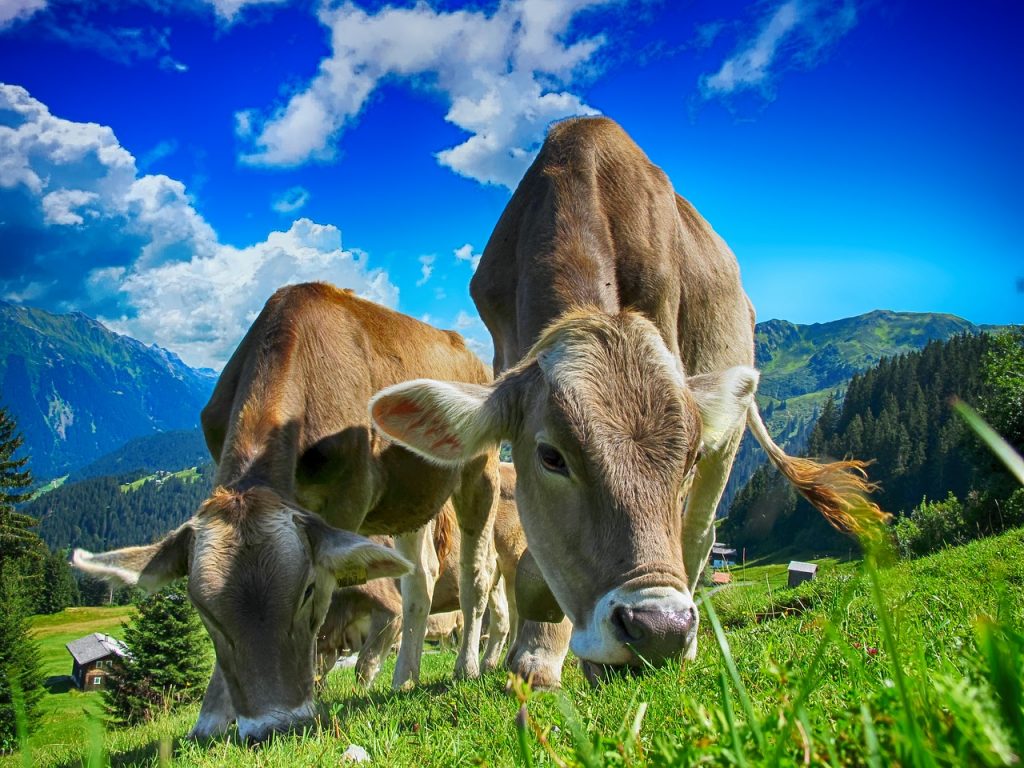The Weird Cow Tax That Some Farmers May Soon Have To Pay
New Zealand's government proposed legislation that would tax farmers based on the amount of methane gas (flatulence) their cows produce as a means to try and curb the amount of environment-harming emissions that seep into the air.
This article is more than 2 years old
Taxing farmers for cow burps sounds bizarre, but it’s exactly what New Zealand’s farmers are now facing thanks to a government proposal to reduce greenhouse gasses. NZ is the first country in the world to seriously propose a cow tax on burping and peeing as a way to meet climate change goals. The government suggested that farmers could offset the new levy by charging consumers more for climate-friendly products.
Not surprisingly, the country’s agriculture community is vehemently against the cow tax. The industry’s primary lobby group, Federated Farmers, said the plan would “rip the guts out of small-town New Zealand” and result in agricultural areas being replaced by forests. Andrew Hoggard, president of Federated Farmers, said that NZ farmers had been trying to work with the government for over two years on drafting a plan that would cut emissions while maintaining food production.
“Our plan was to keep farmers farming,” Hoggard said, but stated that farmers would be rushing to sell their farms if the controversial climate change measure passes. Lawmakers from the conservative ACT party sided with the agriculture community, stating that New Zealand’s cow tax would actually increase greenhouse gasses worldwide. They said this was because closing NZ farms would move farming to other countries that are less efficient at producing food.
A UC Davis report on cows and climate change explains that cattle are the top producers of greenhouse gases worldwide. In fact, a single cow will burp up about 220 pounds of methane every year. While methane is a shorter-lived gas than carbon dioxide, it’s 28 times more potent in heating up the atmosphere. Farm animals also produce nitrous oxide gas when they urinate.

This is a larger problem in New Zealand than in other countries because farm animals greatly outnumber humans on the island nation. NZ is home to five million people, but they live alongside 10 million cows and a whopping 26 million sheep. Therefore, about half of New Zealand’s greenhouse gas emissions come from livestock, and the cow tax is the government’s attempt to lower its effects.
But not every expert agrees that cow taxes and eating less beef are the answer to global warming. Frank Mitloehner, a professor of animal science and air quality extension specialist at UC Davis, says in The Conversation that the link between meat and climate change is questionable. “In my view, there are many reasons for either choosing animal protein or opting for a vegetarian selection. However, foregoing meat and meat products is not the environmental panacea many would have us believe. And if taken to an extreme, it also could have harmful nutritional consequences.”
Mitloehner’s article goes on to explain that the pressure to reduce livestock emissions is based on old science published by the United Nations Food and Agriculture Organization (FAO) in 2006. At the time, the FAO claimed that livestock was harming the climate more than all forms of transportation combined. In 2010, the FAO owned up to its error, but the damage had already been done. “To this day, we struggle to ‘unring’ the bell,” Mitloehner said.
Still, Prime Minister Jacinda Ardern believes that the cow tax will be beneficial, saying that the funds will be invested back into new technology and incentives for farmers. New Zealand’s liberal Labour party tried unsuccessfully to pass a cow tax in 2003 as they faced similar resistance. Farmers hold considerable political power in New Zealand and may make it difficult for Ardern to win reelection next year if the unpopular levy becomes law.



